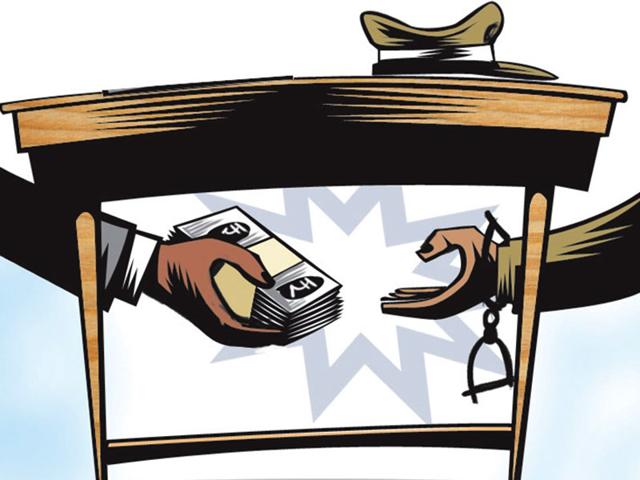INTRODUCTION
The High Court of Bombay passed a judgement on 04 May 2023. In the case of THE STATE OF MAHARASHTRA Vs RAJESAHEB YASHWANT RANE IN CRIMINAL APPEAL NO. 858 OF 2012 which was passed by a single bench comprising of HONOURABLE SHRI JUSTICE S. M. MODAK. The judgment of acquittal has been challenged by the State, raising important issues regarding the acceptance of evidence and the interference with a judgment of acquittal.
FACTS
The case involved the judgment by the Special Judge of the Anti-Corruption Bureau (ACB) in Sindhudurg – Oros, a respondent-accused was acquitted of the charges under Sections 7, 13(1)(d) read with Section 13(2) of the Prevention of Corruption Act, 1988. Talathi, the accused, who allegedly demanded a bribe for issuing a 7/12 extract to the complainant, the owner of agricultural land. The de facto complainant, Joseph Eyyalil, owned agricultural land and approached the accused Talathi for the issuance of a 7/12 extract. The accused allegedly demanded a bribe for this service, and the complainant paid a partial amount before successfully setting up a trap to catch the accused. However, during the trial, the complainant’s support for the prosecution’s case was inconsistent and lacked clarity. The trial court acquitted the accused based on the complainant’s lack of full support, variance in testimonies between the complainant and the trap panch, and the absence of forensic analysis of the digital evidence in the form of recorded conversations.
LAWS INVOLVED:
Section 7: Prohibits public servants from accepting or attempting to obtain bribes or gratification for performing or abstaining from official acts.
Section 13(1)(d): Defines the offense of criminal misconduct by a public servant, involving the use of corrupt or illegal means to obtain personal or third-party benefits.
Section 13(2): Prescribes imprisonment for one to seven years and a fine for public servants found guilty of criminal misconduct under Section 13(1)(d).
These sections aim to prevent corruption and ensure public officials act with integrity. The Prevention of Corruption Act, 1988, provides a legal framework to deter and punish corruption-related offenses in India.
ISSUES RAISED IN THE APPEAL:
The State challenged the judgment of acquittal, raising the following issues in the appeal:
Reliance on other evidence: Whether the trial court should have accepted other evidence when the complainant did not fully support the case.
Corroborative evidence: Whether the trial court should have accepted corroborative evidence presented by the prosecution.
Interference with the judgment of acquittal: Considering the limited scope of the appeal, whether the judgment of acquittal can be overturned based on the grounds raised in the appeal.
SIGNIFICANCE OF PRECEDENTS:
The defence relied on the observations of the Supreme Court in the case of P. Satyanarayan Murthy v. The District Inspector of Police and Others, where the court considered the issue of adequacy of evidence in cases under the Prevention of Corruption Act. The court clarified that even if the de facto complainant is unavailable or does not support the case, the court can convict the accused based on other available evidence
JUDGEMENT
The judgment of acquittal in the corruption case raises several important issues that warrant careful analysis and consideration. While the trial court acquitted the accused based on the complainant’s lack of full support for the prosecution’s case, the State has challenged the judgment, arguing that corroborative evidence should have been considered.
The trial court’s decision to acquit the accused appears to be primarily influenced by the inconsistencies and lack of clarity in the complainant’s testimony. The court observed that the complainant had partially resiled from his initial complaint, and his statements during the trial varied from his earlier accounts. Such inconsistencies weaken the credibility of the complainant’s testimony, which is crucial for establishing the guilt of the accused beyond a reasonable doubt.
Additionally, the absence of forensic analysis of the recorded conversations raises questions about the reliability of the evidence. Forensic analysis could have provided valuable insights into the authenticity and accuracy of the recorded conversations, which could have been a significant piece of evidence in proving the accused’s involvement in corruption. Without this analysis, the court may have had reasonable doubts about the integrity of the evidence presented.
However, the State’s argument that corroborative evidence should have been considered carries weight. The successful trap operation, where the accused was apprehended while accepting the bribe, and the partial payment made by the complainant do provide some support to the prosecution’s case. While the complainant’s credibility may have been called into question, these corroborative elements could have been examined more thoroughly to determine their relevance and impact on the overall case.
“PRIME LEGAL is a full-service law firm that has won a National Award and has more than 20 years of experience in an array of sectors and practice areas. Prime legal fall into a category of best law firm, best lawyer, best family lawyer, best divorce lawyer, best divorce law firm, best criminal lawyer, best criminal law firm, best consumer lawyer, best civil lawyer.”
JUDGEMENT REVIEWED BY VETHIKA D PORWAL, BMS COLLEGE OF LAW


